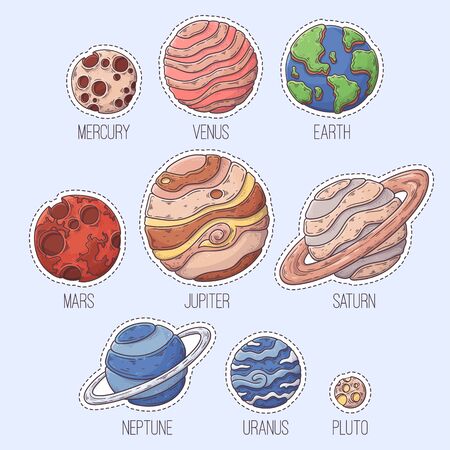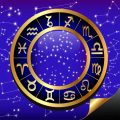1. Understanding Zodiac Traits in Indian Culture
In India, the influence of zodiac signs—popularly known as “Rashi”—runs deep into the roots of society, especially when it comes to arranged marriages. Every region, from Punjab to Kerala and Bengal to Gujarat, has its own unique set of beliefs and stories about how astrological traits shape ones destiny and compatibility. Families often consult astrologers, who analyse the birth chart or “Kundli,” to understand an individuals character, strengths, weaknesses, and life journey based on their zodiac sign. It is not uncommon to hear elders recount anecdotes where a couples harmony was attributed to matching zodiac elements—like a Cancerian bride bringing warmth and nurturing energy to a practical Capricorn groom. In many Indian households, parents believe that certain Rashis are more auspicious or lucky for specific family lineages, and some even avoid matches between signs considered traditionally incompatible. This cultural fabric weaves together faith, tradition, and hope that the stars will guide families to a harmonious marital alliance.
Role of Astrology in Arranged Marriages
In the Indian context, astrology holds a paramount place in the arranged marriage process. Families across the country rely on ancient astrological wisdom to ensure compatibility and marital harmony between prospective brides and grooms. The practice of kundali matching—comparing the horoscopes of two individuals—forms the backbone of matrimonial decision-making. This process, known locally as kundali milan, evaluates multiple aspects such as Guna Milan (point-based compatibility), planetary positions, and doshas (astrological defects) that could influence married life.
Kundali Matching: An Essential Step
Kundali matching is not merely a ritual but a trusted scientific tool in Indian families. The tradition is deeply rooted, as it is believed that favorable planetary alignments can usher in happiness, prosperity, and longevity for the couple. Let’s look at the key factors considered during kundali matching:
| Aspect Evaluated | Significance in Marriage |
|---|---|
| Guna Milan (Points System) | Measures overall compatibility; minimum points required for approval is generally 18 out of 36 |
| Mangal Dosha | Checks for Mars’ position; significant impact on marital life if present |
| Dasha Sandhi | Analyses timing of planetary periods affecting married life |
| Nadi Dosha | Evaluates genetic compatibility and progeny prospects |
The Trust Factor: Why Families Rely on Astrology
Indian families place immense trust in astrology because it acts as a safeguard against future marital discord. Consulting an astrologer or family pandit before finalizing a match is considered essential, especially in traditional households. Many believe that even if two people are perfectly matched in terms of education, values, and lifestyle, unfavorable planetary alignments may still cause challenges unless addressed through remedial rituals or by rejecting the match altogether.
Modern Outlook and Continued Relevance
Despite changing times and rising acceptance of love marriages, astrology continues to guide most arranged alliances. Many urban families blend modern criteria with astrological checks, ensuring both personal preferences and cosmic alignments are respected. Thus, astrology remains a bridge between ancient wisdom and contemporary aspirations in Indian matrimonial culture.

3. Essential Zodiac Traits Considered for Matches
Importance of Temperament in Indian Matchmaking
In the Indian arranged marriage tradition, temperament—known locally as “prakriti”—is a foundational zodiac trait taken very seriously. Families consult astrologers to assess whether the bride and grooms basic natures will harmonise or clash. For example, a fiery Aries may not always blend smoothly with an emotional Cancer. The focus is on creating a peaceful home environment, so temperament compatibility often holds significant weight during the matchmaking process.
Compatibility Analysis: Gun Milan System
The Gun Milan system, widely used in Hindu astrology, evaluates compatibility by scoring partners across eight key areas, including mental connection (Gana), health (Nadi), and outlook towards life (Bhakoot). Each aspect is assigned a certain number of points out of a total 36. A minimum score—often 18 or above—is considered auspicious for marital harmony. This detailed analysis ensures that couples align not just emotionally but also socially and spiritually, reflecting deeply-rooted Indian values.
Doshas: The Make-or-Break Factor
One of the most critical elements in the selection process is checking for “doshas”—astrological flaws that may cause discord or misfortune in married life. The most commonly discussed are Mangal Dosha (Mars affliction) and Nadi Dosha. If either partner has an unfavourable dosha, families may hesitate to proceed unless specific remedies or rituals are performed. In traditional Indian culture, eliminating doshic obstacles is seen as essential for safeguarding future marital happiness.
Cultural Weightage of Traits in Modern India
While urban youth may sometimes blend modern preferences with astrological guidance, families across India still give substantial importance to these age-old zodiac traits. Whether it’s temperament alignment or dosha matching, these astrological checks remain at the heart of arranged marriage negotiations, ensuring that both cosmic and cultural requirements are satisfied before finalising the match.
4. Community Perspectives on Compatibility
In India, the concept of zodiac compatibility is intricately woven into the social and cultural fabric, with each community—be it regional, linguistic, or religious—holding unique perspectives on its importance in arranged marriages. While astrology plays a significant role nationwide, the specific ways in which communities interpret and value zodiac traits often differ.
Regional Variations in Zodiac Matching
Across India’s diverse regions, the weight given to astrological compatibility varies greatly. In South Indian states such as Tamil Nadu and Kerala, matching horoscopes (kundli or jathakam) is often considered mandatory before proceeding with marriage discussions. Meanwhile, in many North Indian communities, kundali milan is highly valued but sometimes balanced alongside factors like family status and education.
| Region | Astrological Practice | Importance in Matchmaking |
|---|---|---|
| South India | Kundli/Jathakam matching (10+ points system) | Essential and decisive |
| North India | Kundali Milan (36-point system) | Highly important but flexible |
| West India | Nakshatra-based matching | Considered but less rigid |
| East India | Lagna & Rashi matching | Important but one of several factors |
Linguistic Influences on Compatibility Beliefs
The language group a family belongs to also shapes attitudes towards zodiac compatibility. For instance, Telugu-speaking families may place strong emphasis on nakshatra porutham (star matching), while Bengali families might consult astrologers for both Guna Milan and traditional family customs. These nuances highlight how linguistic identity subtly influences marital decisions.
Religious Interpretations of Zodiac Traits
The influence of religion further diversifies perspectives on compatibility:
| Religion/Community | Zodiac Approach in Marriage | Cultural Significance |
|---|---|---|
| Hinduism | Kundli/Guna Milan, dosha analysis (like Mangal Dosha) | Deeply embedded tradition; seen as vital for harmony and prosperity |
| Sikhism | Limited reliance on astrology; focus on practical compatibility instead of zodiac traits | Astrology not emphasized by religious doctrine but sometimes followed culturally |
| Islamic communities in India | Tend to avoid astrological matchmaking; rely more on Istikhara (prayer) and family input | Zodiac matching generally discouraged by religious teachings but may persist in folk practices |
| Christian communities in India | Astral beliefs less prominent; more focus on shared values and faith background during matchmaking process | Zodiac rarely considered; emphasis on character and upbringing instead |
Zodiac Compatibility: A Layered Tradition
No matter the region or community, zodiac traits and compatibility act as an additional lens through which families view potential life partners. For some, it is indispensable; for others, it is just one piece of a much larger puzzle that includes values, lifestyle, and mutual respect. This layered approach showcases the rich tapestry of Indian arranged marriages where ancient beliefs meet contemporary realities.
5. Case Studies: Real-Life Experiences
In India, the stories of arranged marriages influenced by zodiac compatibility are as diverse as the country itself. Let us explore a few real-life experiences where zodiac traits played a pivotal role in shaping marital destinies.
Ananya and Rajesh: The Leo and Capricorn Equation
Ananya, a spirited Leo from Delhi, was introduced to Rajesh, a practical Capricorn, through family friends. Their kundalis showed moderate compatibility, but Ananya’s parents were concerned about her fiery temperament versus Rajesh’s reserved nature. After several meetings and astrological consultations, the families decided to go ahead. Today, they credit their mutual respect for each other’s strengths—Leo’s leadership and Capricorn’s discipline—for their harmonious marriage, often advising relatives that understanding each others star sign can enhance marital happiness.
Priya and Arun: A Match Beyond Kundali
Priya from Chennai and Arun from Coimbatore had their horoscopes matched by a renowned astrologer. Despite both being Geminis—known for adaptability—some doshas were found in their charts. However, after performing recommended pujas at a temple in Kanchipuram and with family elders’ blessings, the couple married. They believe their shared zodiac sign makes communication easy and helps them adapt to life’s challenges together. Their story is often cited in their community as an example of balancing traditional beliefs with open-mindedness.
Vikram and Sanya: When Stars Disagree
Vikram, a Scorpio from Lucknow, was almost engaged to Sanya, a Sagittarius. Their families were excited, but kundali matching revealed only 14 out of 36 gunas compatible—a red flag in North Indian matrimony. The astrologer predicted frequent disagreements due to contrasting personalities: Scorpio’s intensity versus Sagittarius’ free spirit. Respecting tradition, both families called off the match amicably. Later, Vikram found his life partner with higher astrological compatibility, reinforcing the trust many Indians place in zodiac-based matchmaking.
The Indian Way: Blending Belief and Experience
These stories echo across Indian households—from metropolitan Mumbai to small towns in Kerala—where astrology is not just superstition but an integral part of marital decision-making. While some couples defy astrological odds and thrive on mutual understanding, others find comfort in following ancient wisdom. Ultimately, the Indian arranged marriage system beautifully weaves together family values, cultural practices, and the mystical influence of the stars.
6. Modern Outlook and Evolving Practices
In today’s rapidly changing India, the approach to selecting a life partner through arranged marriage is witnessing a dynamic transformation. While traditional values—such as matching zodiac traits (kundali milan)—still hold significance, there is a growing trend among urban youth and progressive families to balance these customs with personal preferences and compatibility. Many young Indians now view astrology as a guiding tool rather than an absolute determinant. Families in metropolitan cities like Mumbai, Bengaluru, and Delhi are increasingly open to considering factors such as education, career ambitions, shared interests, and individual personalities alongside astrological compatibility. This shift is especially visible among well-educated circles where parents respect their children’s autonomy while still valuing ancestral wisdom. The result is a hybrid model: horoscopes may be matched as a formality or reassurance, but the final decision often rests on mutual understanding and consent. Dating apps and matrimonial websites have also embraced this blend, allowing users to filter matches by zodiac sign while also showcasing lifestyle choices and hobbies. In essence, modern Indian arranged marriages reflect a beautiful synergy between tradition and choice—preserving cultural heritage without overlooking the importance of genuine connection and love.

